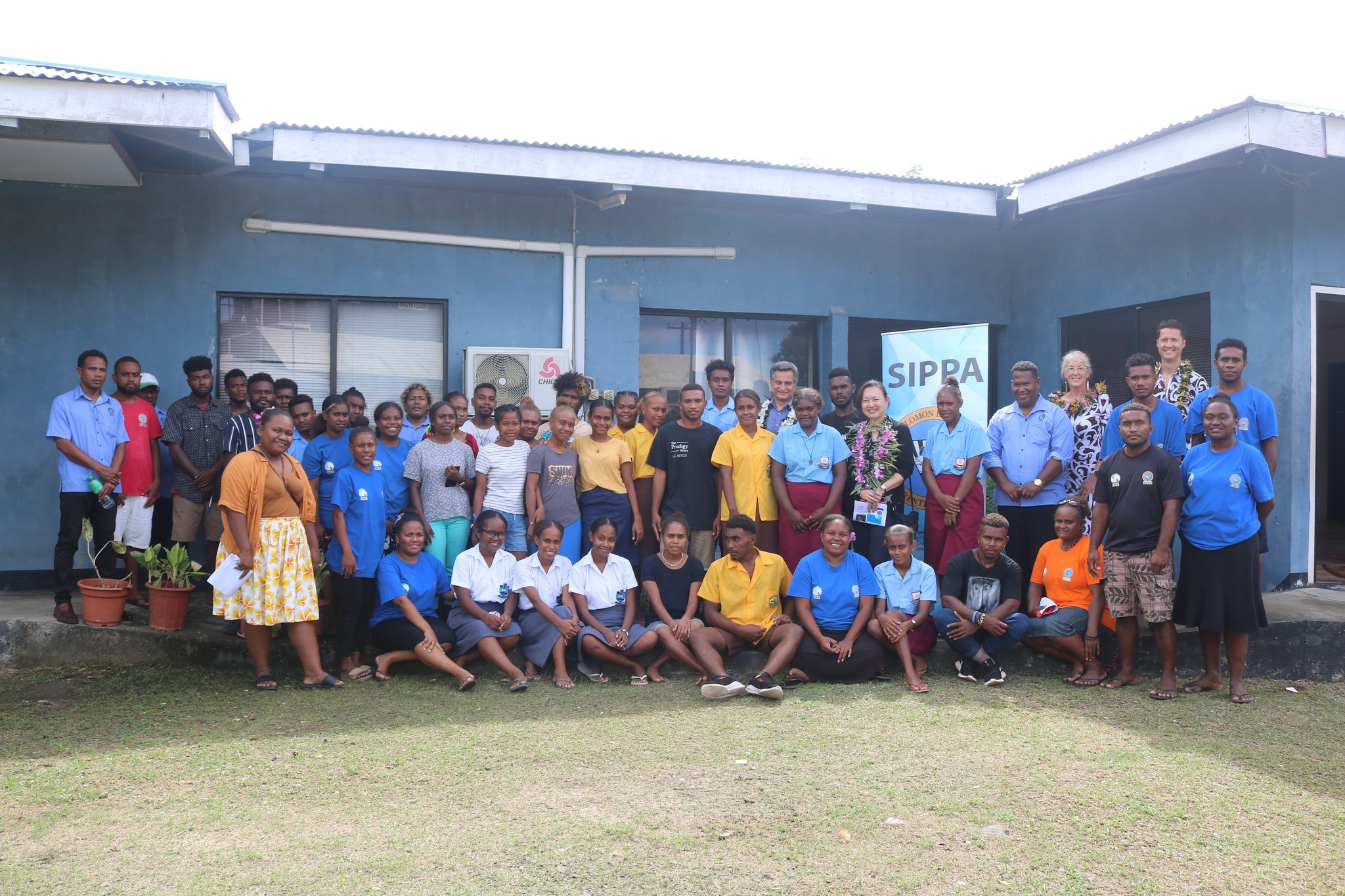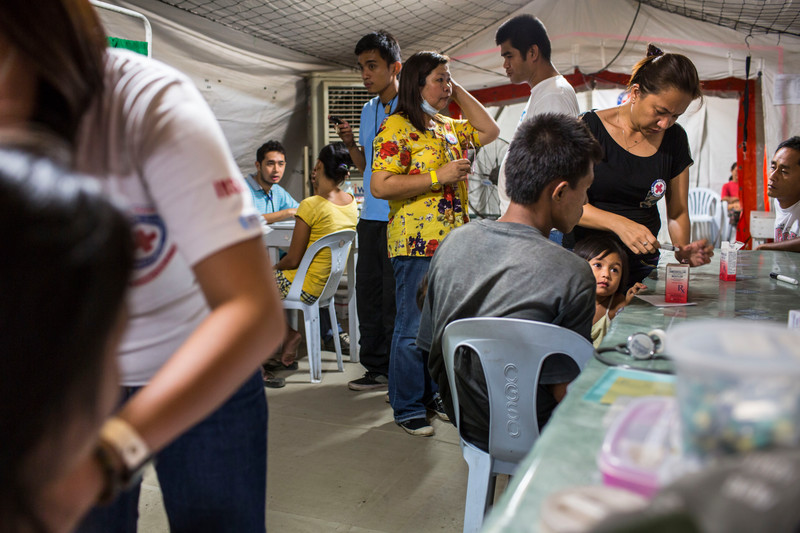
Spotlight
A selection of news from across the Federation

IPPF Statement on the 68th session of the Commission on the Status of Women (CSW)
IPPF welcomes the agreed conclusions of the 68th session of the Commission on the Status of Women (CSW), on the theme of “Accelerating the achievement of gender equality and the empowerment of all women and girls by addressing poverty and strengthening institutions and financing with a gender perspective”. IPPF actively engaged in the process by providing technical inputs to Member States, raising awareness about the interlinkages between SRHR, poverty, gender equality and the empowerment and human rights of all women and girls.
Filter our news by:


| 11 August 2023
Australia's New International Development Policy Sets out a Clear Pathway
Australia’s new International Development Policy was launched this week with a focus on building a peaceful, stable and prosperous region. Announced as the first long term development strategy in almost a decade, it was welcomed by those in the development sector. In contrast to the former government, Australia’s Foreign Minister has committed to rebuilding their ODA budget. While this is likely to be a slow build, with no ODA/GNI targets set, the new policy sets out a clear pathway. IPPF welcomes the policy’s approach to localisation, the strong focus on climate resilience and humanitarian action, the commitment to gender equality and LBGTQI+ rights and the ongoing support for sexual and reproductive health and rights. The new policy has a strong focus on Australia’s role as a development partner in the region. While the geographic focus remains unchanged, the approach is quite different. At the launch, Minister Wong highlighted the importance of sovereignty, where ‘each country can determine its own fate’. In practice for DFAT, this will mean greater accountability at post, more collaborative development of country Development Partnership Plans, more frequent progress reviews and a greater emphasis on implementing learning from evaluation. It also translates to greater investment in local solutions, including funding to support partner governments, local procurement, and civil society. The announcement of a new Civil Society Partnership Fund was well received, although details are lacking. The other underlying theme which differs dramatically from previous aid policies is climate change, recognised by the Minister as the greatest shared challenge for the region. DFAT plans to increase climate investments and better address climate risk with a target that half of bilateral and regional investments must have a climate objective by 2024-25, increasing to 80% by 2028-29. The policy also references a new humanitarian strategy, which will complement the aid policy and is due to begin consultation in September. Inclusion is a high priority within the policy. Minister Wong highlighted the importance of a region where ‘all can thrive and reach their potential’. Three focus areas for inclusion are Gender Equality, Disability Inclusion and LGBTQI+ rights, with supporting strategies in development, due for completion by the May budget 2024. The government is reinstating the target for 80% of development investments to address gender equality and a new requirement for investment over $3m to include gender equality objectives. While health is not a focus area within the policy, it was mentioned as part of infrastructure programming. The policy notes the vulnerability of many health systems in the region and Australia’s continued role to strengthen capacity and support prevention and response for both infectious and non- communicable diseases. There is also a commitment to expand universal health coverage and a specific mention of support for sexual and reproductive health and rights. Resourcing for international development is explored in detail. Responding to the findings of the Development Finance Review and recognising the limitations of ODA funding, the policy proposes an increase in blended finance, and an investment of up to A$250m to leverage private investment. This will be supported by a new unit in DFAT to work with philanthropy and impact investment. The policy also highlights changes to reporting and accountability within DFAT, greater transparency of results, and increased investment in DFAT development capability (36.8m announced in the May budget). Since the integration of AusAID into DFAT in 2013, international development has been a low priority in Australia, undervalued and diminished through multiple budget cuts. The Albanese government has promised something different. While the lack of an ODA funding target is disappointing, this policy is a step in the right direction. The recognition of shared challenges and shift towards genuine engagement highlight an understanding of the value of development work, not just for beneficiaries but for the region as a whole. Together with DFAT’s investment in development capability and shift to a whole of government approach and Minister Wong’s outspoken commitment to the 2030 Agenda for Sustainable Development there are strong indications that Australia is taking development seriously. As recipients and partners of the Australian International Development program, IPPF look forward to supporting the roll out of the new Australian International Development Policy, consulting on the strategies and participating in the design of new programs. We hope to see the collaboration continue and the funding match the ambition. IPPF works closely with the Australian government and is funded through the Department of Foreign Affairs and Trade to integrate sexual and reproductive health and rights (SRHR) into humanitarian preparedness response and recovery through SPRINT; to restore services, particularly to marginalized populations impacted by COVID-19 through RESPOND and to support the ambitious Pacific Niu Vaka Strategy Phase 2, enabling quality SRHR to be realised for everyone in the Pacific. To read the full policy, click here. Cover illustration by Edinah Chewe for The Greats.

| 28 March 2023
IPPF’s Director General Visits Solomon Islands and Australia
The Director General of the International Planned Parenthood Federation (IPPF), Dr Alvaro Bermejo, is in Australia this week for high level meetings with Australian Government Ministers and the Australian Department of Foreign Affairs and Trade (DFAT). He is joined by Ms Tomoka Fukuda, Regional Director of IPPF’s East and Southeast Asia and Oceania Region (ESEAOR) and Ms Phoebe Ryan, IPPF’s Chief of the Australia and New Zealand Office. In Australia, Dr Bermejo has been privileged to meet with Australia’s Minister for International Development and the Pacific, the Hon Pat Conroy. Together, they discussed how Australia can play a leadership role in advancing sexual and reproductive health and rights through Australia’s international development cooperation.

| 20 October 2016
Urgent appeal: Typhoon Haima strikes the Philippines
Another dangerous tropical cyclone has emerged in the Pacific Ocean. The Typhoon Haima hit the northern part of the Philippines and considering the strength of the storm this cyclone will have had a high humanitarian impact. Please make a donation now. As of reporting time, a total of 18,157 families (90,589 individuals) were evacuated. Initial reports from the Cordillera Region show that 113 houses were damaged. With the strength and extent of the destruction, it is most likely that health and birthing facilities and schools were severely affected. In the rush to provide shelter and food in a crisis, the health and protection needs of pregnant women and young families are often overlooked. When the Typhoon struck approximately one in five women will have been pregnant. Without access to the right health care, we expect 20 per cent of them will incur complications during the delivery. Your donation will help us save lives. Having established partnerships in 170 countries, IPPF is one of the first responders when a crisis occurs. Helping the hardest-to-reach areas, particularly women and girls, we are often the only health providers there. The International Planned Parenthood Federation, working through the Family Planning Organization of the Philippines (FPOP), is responding to this crisis. We have worked together since 1969 and in recent years we have saved countless lives following Typhoon Haikui, Bopha, Trami and Haiyan. FPOP is working closely with the local government and international relief agencies to ensure that no women or her family is left behind and put at risk during this crisis. Nandy Senoc, FPOP’s Executive Director said “While we don’t yet know the full extent to the devastation, we are mobilizing our health workers and volunteers, to provide lifesaving services. As a volunteer organization, we are there before, during and after the crisis strikes. We are ready to respond now. For many women and girls in these affected areas, access to our essential health and protection services could mean the difference between life and death. I would like to thank you for supporting IPPF’s work and for standing by women and girls during difficult times like this. Your generosity today will help us support more women and girls as this crisis unfolds." With your support we reach over 2.2 million clients in crisis settings annually in all corners of the world.

| 02 August 2016
IPPF-SPRINT provides humanitarian assistance in conflict affected areas of North Cotabato, Philippines
Aug 2, 2016: New Delhi: Manila: The International Planned Parenthood Federation through its humanitarian wing, the SPRINT Initiative, is providing humanitarian assistance in the conflict-affected areas of Cotabato in the Philippines. The armed conflict between the Government of the Philippines (GPH) and the secessionist Moro Islamic Liberation Front (MILF) has lasted for more than five decades and has displaced around a million people in central Mindanao, Philippines. According to reports dated April 2016, the armed conflict has escalated, creating concerns over a protracted crisis and the vulnerability of women and girls. The conflict has internally displaced farmers who are living in the hinterland communities of the province of North Cotabato, namely in the municipalities of Makilala, Magpet, Kabacan and Tulunan. The SPRINT Initiative project will reach out to 25 affected villages or barangays located in geographically isolated and depressed areas, thereby making access to healthcare an extremely rare thing. As per the assessments done by IPPF’s East and South East Asia and Oceania Region office’s (ESEAOR) Member Association, the Family Planning Association of Philippines (FPOP), access to Sexual and Reproductive Health (SRH) services in these villages is very limited. “IPPF-SPRINT and FPOP will coordinate the implementation of this project with (the) UNFPA centre in Mindanao throughout the 4-month period from August to November, 2016. The Minimum Initial Service Package (MISP) will be implemented on-the-ground. IPPF-SPRINT will reach out to around 15,000 beneficiaries in the area and will provide crucial and life-saving SRH services. An amount of AUD 50,000 has been mobilised for the response,” said Aditi Ghosh, Director, IPPF-SPRINT. This humanitarian response is being funded by the Department of Foreign Affairs and Trade (DFAT) under the Australian government. “FPOP is a part of the UN cluster system, particularly Health and Protection clusters in the national level. FPOP will also coordinate the humanitarian response with UN regional centres covering affected areas. The North Cotabato Provincial Disaster Risk Reduction and Management Council (DRRMC) will also play a key role in implementing the MISP,” said Nora Murat, Regional Director, IPPF-ESEAOR. IPPF-SPRINT will work on prevention and management of the consequences of sexual violence, reduction of sexually transmitted infections (STIs) including HIV transmission, prevention of excess maternal and neonatal mortality and morbidity, plan for the provision of comprehensive SRH services and integrate into primary health care as the situation permits. Apart from the above, orientation on MISP and Risk Management for implementing partners and project staff/volunteers will be undertaken. Contact info: Murali Kunduru: [email protected] Jayamalar Samuel: [email protected] Media Contact: Rhea Chawla: [email protected] www.ippf-sprint.org The SPRINT Initiative is a Sexual and Reproductive Health (SRH) Programme in Crisis and Post-Crisis Situations. SPRINT ensures access to essential lifesaving SRH services for women, men and children in times of crises, a time when services are most needed yet are not prioritised or recognised by key humanitarian responders. The SPRINT Initiative saves lives and delivers on behalf of the Australian Government aid program (DFAT: Department of Foreign Affairs and Trade), which aims to provide more effective preparedness for and response to disasters and crises. The Initiative is managed by the International Planned Parenthood Federation (IPPF) and represents its commitment to increasing access to SRH services for crisis-affected populations. The International Planned Parenthood Federation is a global service provider and a leading advocate of sexual and reproductive health and rights for all. It is a worldwide movement of national organisations working with and for communities and individuals.














